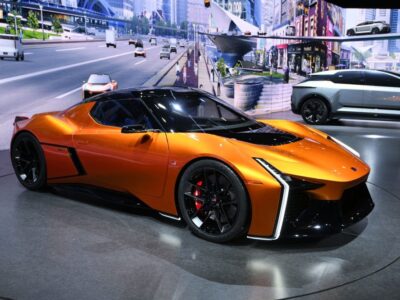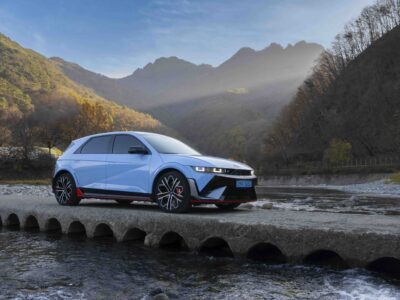As major corporations switch to electric vehicles (EVs), the reliability of these new vans and trucks must be tested, especially when making on-time deliveries. With limited range and charge times factors to consider, FedEx Office has decided to use EVs for its SameDay City Delivery fleet. Alongside Ford, the parcel logistics company introduced 10 E-Transit vans across nine cities in the U.S. in August 2022 to see if this will help reduce emissions and set a new standard for future endeavors.
While FedEx plans to go carbon neutral in 2040, reaching that marker will take time and a lot of experimenting. The company will use the E-Transit vans in Plantation, Boca Raton, and Clearwater, FL; Chicago, IL; Newark, CA; Allen and Frisco, TX; Chandler, AZ; and Madison Heights, MI.
With 126 miles of driving range, Ford’s EV can only go so far before it needs to be charged, meaning it’s ideal for shorter distances in residential areas.
To keep up with the pace of charging, FedEx has installed charging stations at each vehicle’s respective depot, along with supplemental remote charging stations.
“FedEx SameDay City is a perfect use-case for testing the capabilities of the Ford E-Transit,” said Brian Phillips, CEO and President of FedEx Office. “With the vehicle’s range and the availability of charging infrastructure, we are excited to see how this vehicle performs in our operation and helps us understand the path forward to scale an electrification strategy for FedEx Office.”
This adoption of clean vehicles is one cog in the complex machine that is FedEx’s carbon neutrality mission. The company is purchasing 99.8% of its paper from third-party certified sustainable forest programs on top of implementing energy management solutions like LED lighting at company offices. Furthermore, the delivery giant will offer customers more eco-friendly shipping options, offering more sustainably-made packing and carbon-neutral shipping options.
A crucial area to reach carbon neutrality will be using sustainable aviation fuel (SAF) for its international and long-distance logistic operations. While the company has worked hard to reduce plane fuel consumption since 2012, the challenge of using less carbon-intensive energy sources in aviation remains.
However, FedEx is also funding research through the Yale Center for Natural Carbon Capture for more ecological carbon sequestration, particularly for aviation emissions. Newsweek named the company one of America’s Most Responsible Companies in 2021.
For Ford, the SameDay City Delivery program continues the trend of businesses buying E-Transit vans for electric fleets. Walmart bought 1,100 units in January 2022, and Penske brought in 750 units for electric van rentals in April 2022.
Ford’s electric touch also expands beyond the borders of America, with delivery companies like DPD in the U.K. buying up 1,000 vans in May 2022 to meet its own electrification goals. The common theme is that the automaker’s vans are not only reliable but have notable customization features in the interior and can haul hefty loads of cargo despite being mid-size.
Through the Ford Pro program, data from the e-vans can be analyzed to improve charge times, navigation, and driving range.
“More data, more uptime, more productivity, smart charging, and much less hassle,” Ford CEO Jim Farley said. The E-Transit is an ideal size for American suburban deliveries and narrow European city streets.
FedEx and Ford’s collaboration can set a standard for future parcel delivery. “Ford Pro’s advancements in technology and work-ready electric products will help companies like FedEx improve productivity, lower ownership cost, and accelerate a carbon emissions-free future,” said Tim Baughman, general manager of Ford Pro North America.





